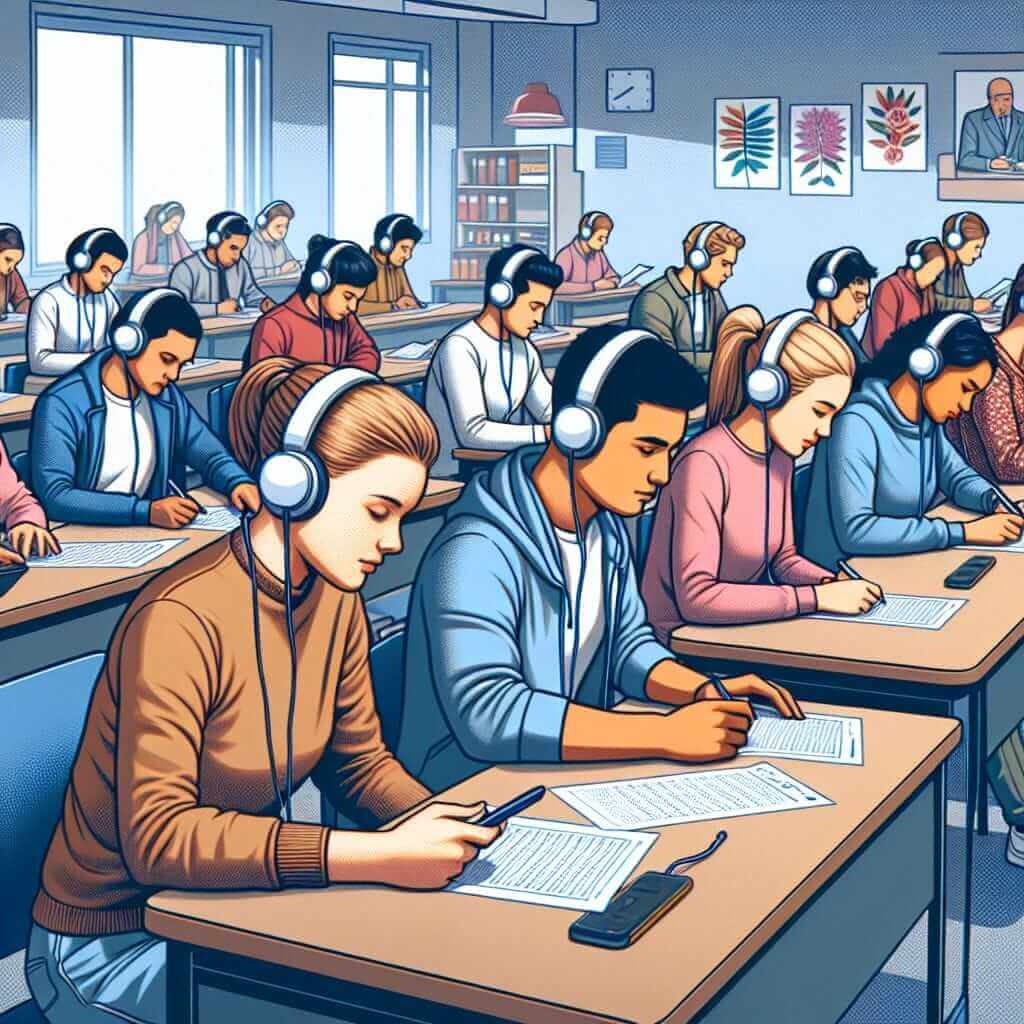As an IELTS instructor with over two decades of experience, I often encounter students fixated on finding specific answers like “What does Peter want to drink?” while practicing IELTS Listening. While understanding individual questions is important, focusing solely on isolated details can hinder your overall listening comprehension and test performance.
This article delves into the nuances of IELTS Listening, moving beyond specific answers to equip you with the skills needed to tackle any question that comes your way.
Understanding the Importance of Context in IELTS Listening
The IELTS Listening test assesses your ability to understand spoken English in various contexts. It’s not simply about catching individual words but rather comprehending the overall meaning and speaker’s intention.
Questions like “What does Peter want to drink?” are designed to test your ability to:
- Identify key information: Recognizing names (Peter) and keywords (drink) within a stream of spoken language.
- Contextualize information: Understanding the situation and relationships between speakers to deduce meaning. For example, is the conversation taking place in a restaurant, at home, or somewhere else?
- Follow a conversation flow: Keeping track of topic shifts and identifying how pieces of information connect.
Effective Strategies for IELTS Listening
To excel in IELTS Listening and avoid getting stuck on specific details, consider these strategies:
1. Active Listening and Note-Taking
- Practice active listening: Focus on understanding the main ideas, speaker’s tone, and the context of the conversation.
- Develop effective note-taking: Use abbreviations, symbols, and keywords to jot down essential information without getting bogged down by writing full sentences.
2. Predicting and Anticipating
- Utilize pre-listening time: Use the time given before each recording to read the questions and predict possible answers. This helps you focus your listening.
- Anticipate vocabulary: Think about common words and phrases related to the topic. For example, if the context is a restaurant, anticipate words like “menu,” “order,” “beverages,” and various drink names.
3. Focusing on Synonyms and Paraphrasing
- Be aware of synonyms: The speaker might use different words to convey the same meaning as in the questions. For instance, they might say “refreshment” instead of “drink.”
- Understand paraphrasing: The speaker might rephrase the answer in a different way. For instance, instead of saying “Peter wants to drink water,” the speaker might say, “Peter asked for a glass of water.”

Example from an IELTS Listening Test
Let’s imagine the following excerpt from an IELTS Listening test:
Woman: So, Peter, what can I get you to drink? We have a variety of juices, sodas, and even some herbal teas.
Peter: I think I’ll just stick with water for now, thanks.
Question: What does Peter want to drink?
Analysis:
- The question directly asks for Peter’s drink preference.
- The context is established as a situation where drinks are being offered.
- Although several drink options are mentioned, Peter’s response clearly indicates his choice: “water.”
Tips for Success:
- Practice regularly: Familiarize yourself with different accents and speaking styles using official IELTS practice materials.
- Develop your vocabulary: Expand your range of vocabulary related to common IELTS topics to quickly understand and interpret spoken language.
- Focus on comprehension, not memorization: Aim to understand the overall message rather than memorizing answers, as the exact wording will likely be different.
Conclusion
While “What does Peter want to drink?” might seem like a simple question, it exemplifies the importance of understanding context and applying effective listening strategies. Remember, acing the IELTS Listening test requires more than just catching individual words; it demands active listening, contextual understanding, and the ability to synthesize information effectively. By focusing on these broader skills, you’ll be well-prepared to answer any question that comes your way, even if you don’t catch every single word.